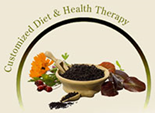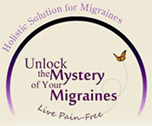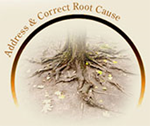





Is It Lurking In Your Kitchen Cabinet
Are you addicted to artificial sweeteners, if so, what could be the harm effect onto your body?
The three primary artificial sweeteners currently in use are saccharin (Seet’N Low), aspartame (Equal, NutraSweet), and sucralose (Splenda). Advocates argue that the benefits provided outweigh the potential negative health effects. In fact, Aspartame increases appetite as well as body weight. It’s also known as a cancer-causing compound in rats. It’s composed of aspartic acid, phenylalanine, and methanol. It was approved for food use by the FDA in 1981. The brand names of Aspartame are: NutraSweet, along with Equal, Spoonful, Indulge, Equal-Measure, etc…
Aspartame kills brain neurons. Russell L. Blaylock, professor of neurosurgery at the University of Mississippi’s Medical Center, explains in his book Excito-toxins “The Taste That Kills” that though aspartame and glutamate (in the chemically related substance MSG) is a neurotransmitter normally found in the brain and spinal cord. When aspartame reaches certain levels it causes the death of brain neurons. The risk to infants, children, and pregnant women are higher because the blood/brain barrier, which normally protects the brain, is not fully developed until adulthood.
Dr. Blaylock and numerous other experts believe that long-term exposure to excito-toxins may play a part in diseases such as: Brain lesions and tumors, Early-onset Alzheimer’s Disease, Epilepsy, Hearing problems, Lupus, Memory loss, Multiple sclerosis, and Parkinson’s Disease.
Products contain Aspartame- Black list Aspartame
Beware of food products containing these words:
“Lite”, “Diet”, “Low-calorie”, “No calorie”
Among these are: Diet iced teas, Diet soft drinks, Crystal Light, Yogurt lite, Diet Jell-O, Some cereals, and Some children’s vitamins.
Health problems initially reported with Aspartame consumption
- Change in vision
- sleep problems/insomnia
- slurred speech
- Memory loss
- Brain tumors
- Comas
- Poor equilibrium
- Change in heart rate – heart palpitations
- Fatigue and weakness
- Joint pain
- Neurological/behavioral symptoms (67 percent), including headaches, dizziness, and mood changes such as depression and anxiety, seizure and convulsion -uncontrollable shaking
- Gastrointestinal symptoms (24 percent) including nausea and vomiting, abdominal cramps/pain and diarrhea
- Allergic type and/or dermatologic symptoms (15 percent) including hives and rash
- Alterations in menstrual patterns (6 percent)
- Migraine headaches are by far the most frequently reported reaction
Today, there are some 10,000 documented reports of adverse reactions to aspartame, including death. But since it is estimated only about one percent of people who experience a reaction report it, it is safe to assume at least a million people have had a reaction to this chemical.
References:
Artificial Sweeteners “Encyclopedia of Healing Foods ” book by Dr. Michael Murray p 43-44-45
Dangerous Synthetics: Aspartame & NutraSweet Excerpted from an article by Bill Strubbe, a California-based freelance writer who confesses to having once been addicted to Sweet tarts. “Introduction of Nutrition” handbook 131-132-133-134
Aspartame Research: Questions Remain by Jodi Friedlander M.S. & Edward Bauman, M.Ed., Ph.D. “Introduction of Nutrition” handbook p 133-134


